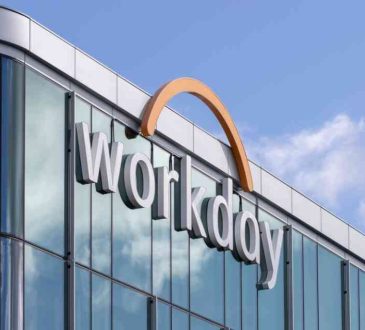Lawmakers Need to Go Beyond AI Bias and Look at AI’s Impact on the Economy

Much of the policy discussions in Europe and the US concerning Artificial Intelligence (AI) have been focused on AI bias that can lead to discrimination or how AI can be exploited for nefarious purposes such as deep fake pornography. And, of course, there has been a lot of discussion regarding AI creating real-world terminators and destroying the world as we know it or how AI will save the world. Lawmakers have focused on these headline-grabbing aspects of AI, and deservedly so. Still, one topic regarding AI is getting short shrift with policymakers: the impact of AI on the economy and market competition.
AI has many benefits, including better interpretation of medical tests and spotting diseases, making cars safer, improved detection of credit card fraud, and much more. Furthermore, AI can increase labor productivity by automating routine tasks to free workers to focus on higher-level tasks. Thus, AI has the promise to let us do more with fewer resources, which, in theory, would enlarge the economy. But, as noted by Economist Joseph E. Stiglitz, what we have seen is that over the last four decades is that almost all of the “gains of increased productivity have gone to the top, while the middle has stagnated and many at the bottom have seen both incomes and opportunity wane.”
It is ambiguous what impact AI will have on this decades-long stagnation of wages. There are estimates that 50 to 70% of this languishing over the last four decades can be mainly attributed to the loss of routine jobs to automation. The rise of AI significantly furthers this automation trend, given AI’s ability to handle even more complex tasks, including those that would typically be held by more skilled workers that were historically not impacted in prior decades’ moves to automate. For example, McKinsey estimated a few years ago that 50 percent of current work activities are automatable, and 6 out of 10 current occupations have more than 30 percent of their work activities that could be automated. Furthermore, McKinsey estimated that worldwide, between 400 to 800 million individuals could have their jobs automated and would need to find new careers by 2030.
That being said, some economists are projecting a net increase in jobs with the rise of AI, but there will be significant worker displacement. For example, the World Economic Forum estimated in 2020 that by 2025 over 85 million jobs would be displaced by AI, but 97 million new jobs would be created by AI across 26 countries, meaning there will be a net increase of 12 million jobs. That is the potential upside.
But the downside is that this challenging displacement process could include lower wages for even more people, further accelerating inequality. And given the societal upheaval that we have seen over the last few decades due to rising inequality and globalization that has fueled authoritarianism and polarization, the growth of AI and its ability to accelerate the displacement of jobs may further test our democracy.
Governments, schools, and employers must acknowledge this issue and step up to help workers ease through this transition. We need to be smart about this, as we can’t say let’s retrain everyone to be software developers, as AI is increasingly being built to automate the development of software programs.
Specific to market competition, Big Tech firms are certainly taking AI very seriously — Google CEO Sundar Pichai declared that AI will “have a more profound impact on humanity than fire, electricity, and the internet.” Big technology firms, including Amazon, Alphabet/Google, Meta/Facebook, and Netflix, are responsible for $2 of every $3 spent on AI. In addition, the median number of AI employees for Big Tech firms is nearly 10x compared to 2 the next 20 tech players. Thus, the massive investment in AI by Big Tech, combined with their “hoard” of data and their elastic cloud-based computing environments, lends itself to the Big Tech firms cornering the market for AI and automation. Having such a concentration of power in the technology that will power the “Fourth Industrial Revolution” will likely exacerbate societal inequality even further.
As regulators and lawmakers look at antitrust issues concerning Big Tech firms, AI should not be overlooked. To paraphrase Wayne Gretzky, regulators need to skate where the puck is going, not where it has been. AI is where the puck is going in technology. Therefore, acquisitions of AI companies by Big Tech companies should be more closely scrutinized. In addition, the government should consider mandating open intellectual property for AI. For example, this could be modeled on the 1956 federal consent decree with Bell that required Bell to license all its patents royalty-free to other businesses. This led to incredible innovations such as the transistor, the solar cell, and the laser. Thus, when policymakers look at AI, it is equally critical to address whether or not it is healthy for our economy to have the equivalent of electricity concentrated in a few firms’ hands.
Written by Tom Kemp.
Have you read?
Largest Hotel Chains in the World, 2023.
Best Residence by Investment Programs for 2023.
International Financial Centres Ranking, 2023.
Best Citizenship by Investment (CBI) for 2023.
The World’s Most Valuable Unicorns, 2023.
Add CEOWORLD magazine to your Google News feed.
Follow CEOWORLD magazine headlines on: Google News, LinkedIn, Twitter, and Facebook.
Copyright 2024 The CEOWORLD magazine. All rights reserved. This material (and any extract from it) must not be copied, redistributed or placed on any website, without CEOWORLD magazine' prior written consent. For media queries, please contact: info@ceoworld.biz








